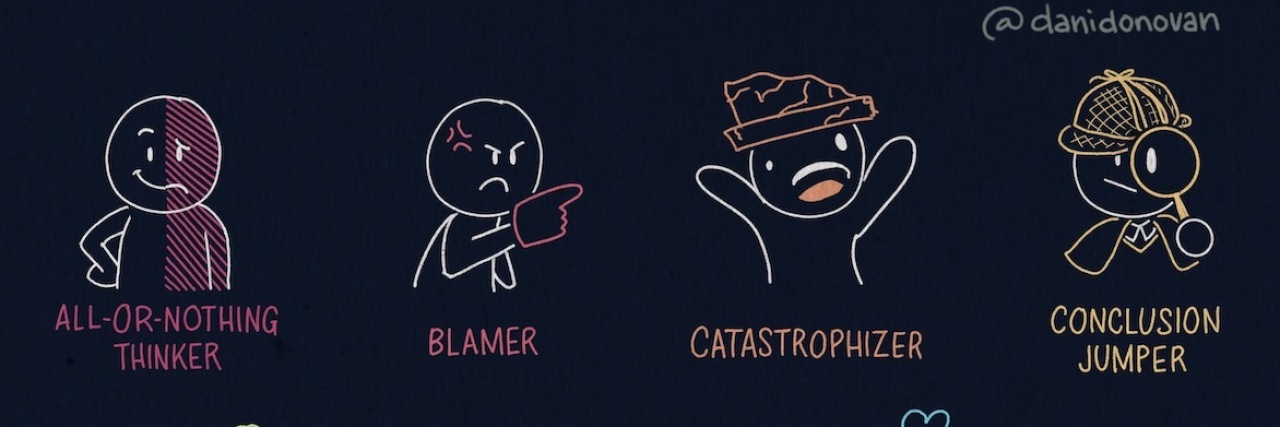If You Can Relate to These 'Faces of Cognitive Distortions,' You're Not Alone
In 2019, I created the series “The Faces of ADHD” as a way to depict common ADHD coping mechanisms and masking behaviors. As it gained popularity, I realized that creating characters was a useful way to represent different mental health concepts. While on my honeymoon in Italy, I felt inspired to make a new series; I ended up sketching all 16 of the characters on the charter bus between destinations.
My intent for “The Faces of Cognitive Distortions“ was to teach others about the different types of “thinking traps” and help them identify the ones they fall into most often. Many people (myself included) are visual learners, so having a memorable set of characters may help them remember cognitive distortions in the future.
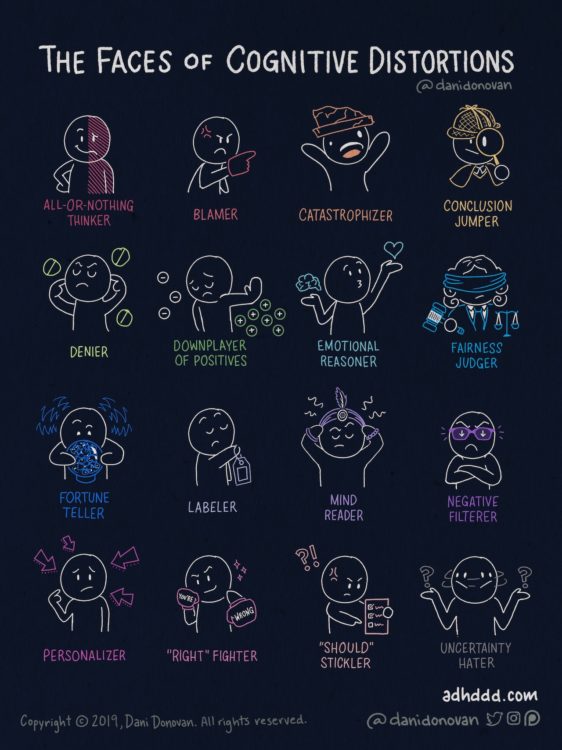
What are cognitive distortions? They’re automatic thought patterns that occur when we convince ourselves that something (usually negative) is true… when often it isn’t. They typically happen during an upsetting event or experience and warp reality by reinforcing negative beliefs.
Here’s a real-life example: While you’re giving a presentation at work, you notice two coworkers whispering and giggling. You get a sinking feeling in your gut, convinced that they’re making fun of you.
This example highlights a few different cognitive distortions:
- Jumping to conclusions: deducing things based on assumptions, not facts
- Mind-reading: predicting how people are feeling, overanalyzing reactions, assuming negative intent without evidence
- Personalizing: believing everything others say or do is about you
- Emotional reasoning: believing things are true because they feel true
Previous negative experiences (and subsequent cognitive biases) can lead us to believe we know things are true without evidence.
I’d like readers to know that these cognitive distortions are common, and happen to everyone from time to time. When they start becoming a recurring part of your daily life, or are causing chronic anxiety and lead to ruminating thoughts… that’s when it may be time to take action. Cognitive behavioral therapy (CBT) aims to help people recognize their patterns of thinking so they can learn to problem-solve, change their feelings and better regulate their emotions. If CBT is not an affordable option, many studies have found self-directed CBT can be very effective as well.
My hope is that these educational CBT cartoons can be used as a tool to help people recognize negative thought patterns, reframe and reduce anxiety, and gain a better understanding of how their brains work.
Below you can find each face in “The Faces of Cognitive Distortions” series. Which ones do you relate to?
1. All-or-Nothing Thinking
- Habitual black and white thinking
- Sees people and events in absolute terms
- Everything is a success or total failure
- No middle ground
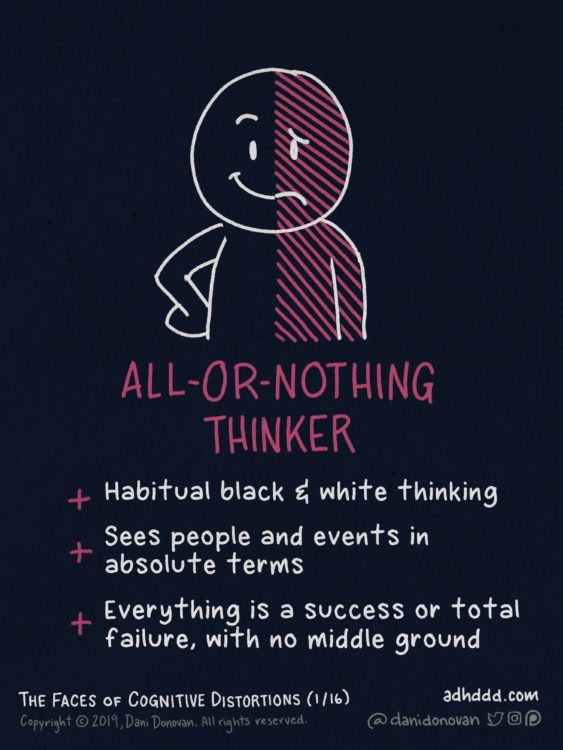
2. Blaming
- Blames self (or others) for things outside their control
- Always wants to know whose “fault” things are
- Focuses on who’s to blame for the problem, rather than working to find a solution
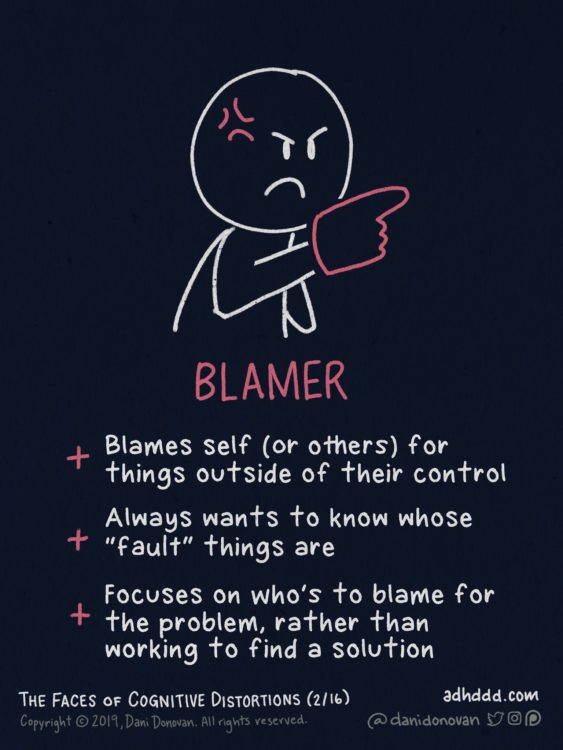
3. Catastrophizing
- Blows things out of proportion
- Thinks tough situations will never end
- Always expects the worst
- Doubts ability to handle things
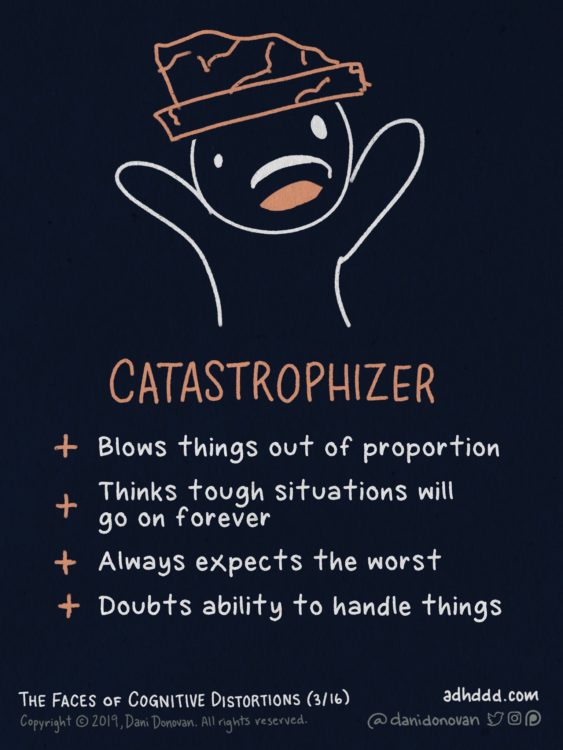
4. Jumping to Conclusions
- Creates thoughts and opinions based on assumptions
- Deduces things based on feelings, not facts
- Looks for clues to prove they’re right (cognitive bias)
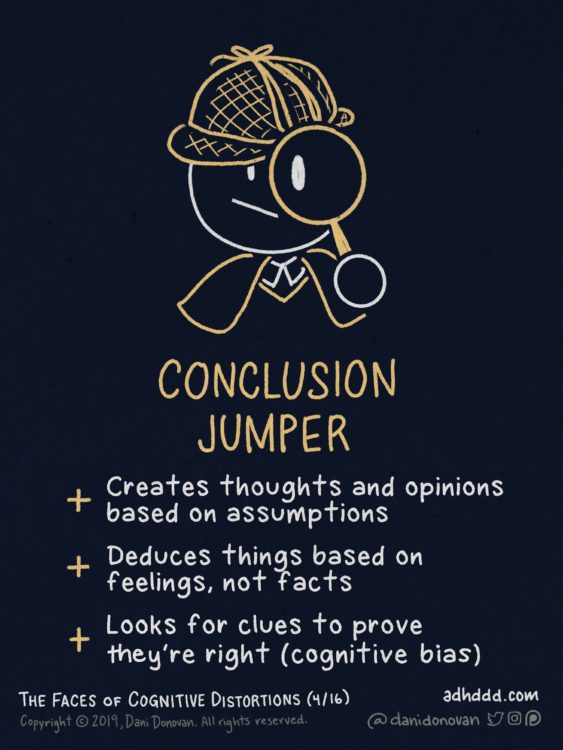
5. Denying
- Refuses to accept current (often undesirable) circumstances
- Just wants to “go back to how things were”
- Spends time wishing things were different, instead of finding ways to move forward
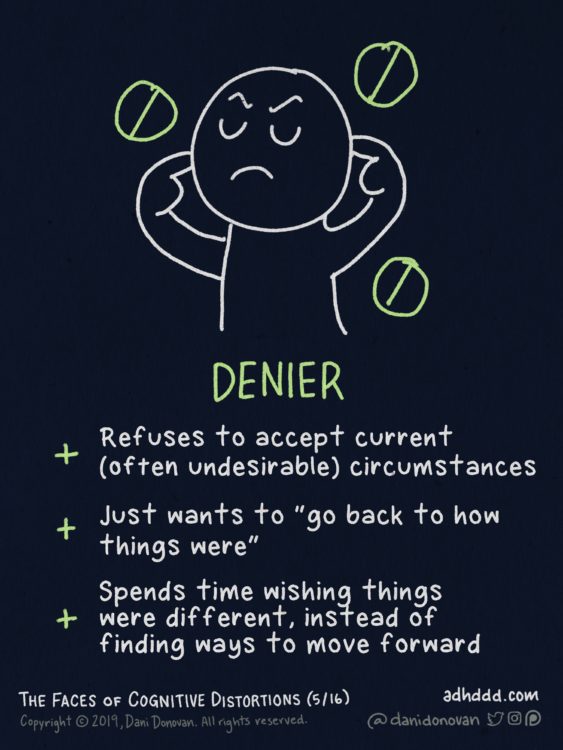
6. Downplaying Positives
- “They’re just saying that to be nice, they don’t really mean it.”
- Doesn’t give self credit for things
- Dismisses positive experiences
- Accomplishments “don’t count”
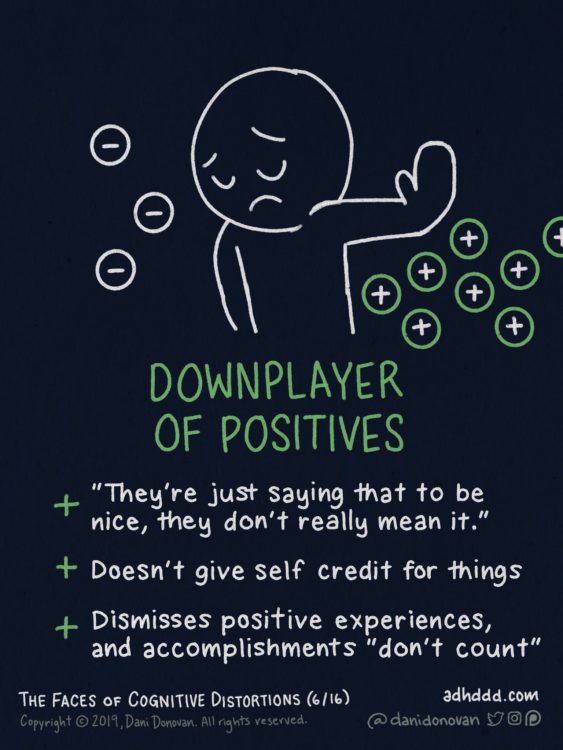
7. Emotional Reasoning
- Relies on gut feelings to guide decisions
- Believes things are true because they “feel” true
- Can have difficulty separating emotions from facts
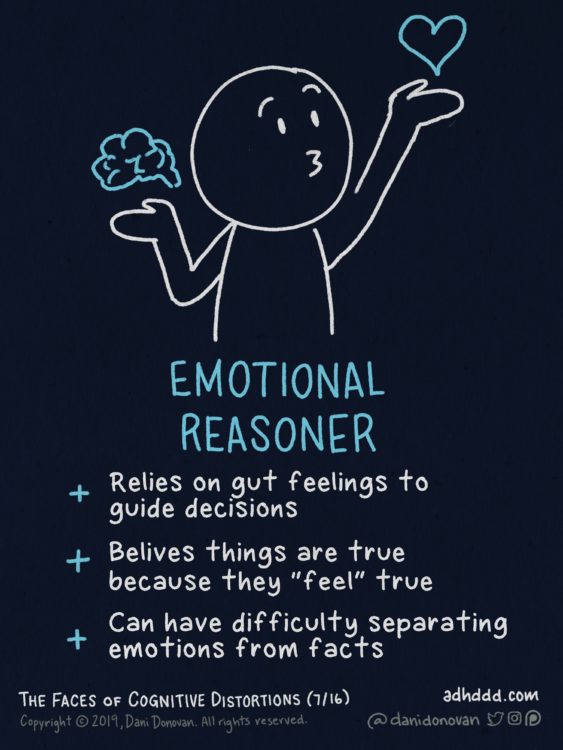
8. Judging Fairness
- May become resentful over unequal treatment
- Deeply-held moral beliefs about right and wrong
- Difficulty accepting unpleasant or unfair outcomes
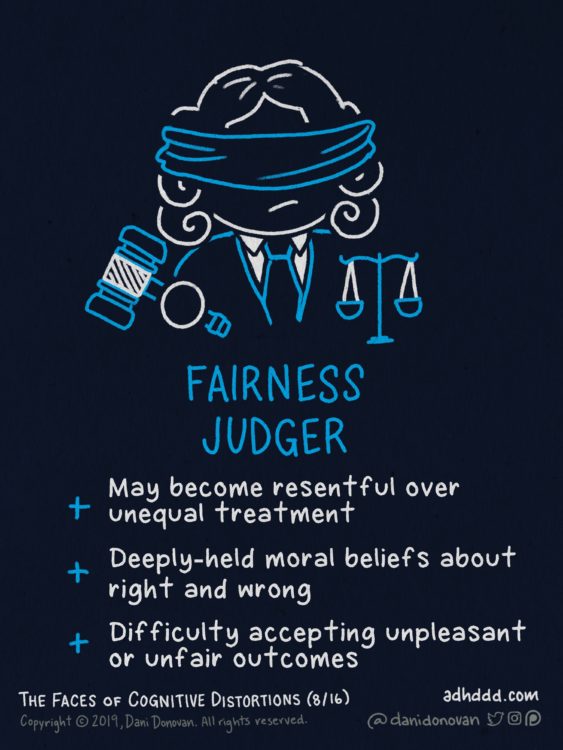
9. Fortune-Telling
- Believes they know how things will end up turning out
- Attempts to predict future outcomes, reactions or events
- Anticipates negative outcomes, regardless of actual odds
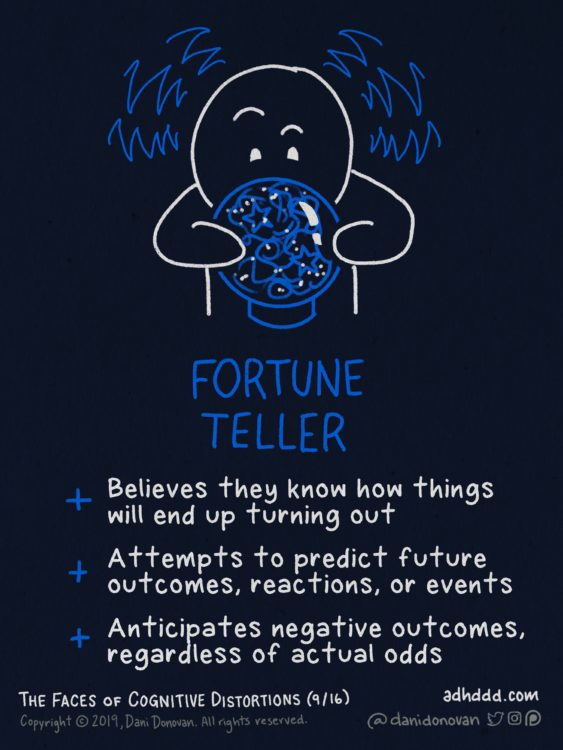
10. Labeling
- Judgmental (and often critical) of self or others
- Reduces self or others down to a single — usually negative — descriptor, based on their behavior (lazy, stupid, failure)
- Misunderstands and underestimates people
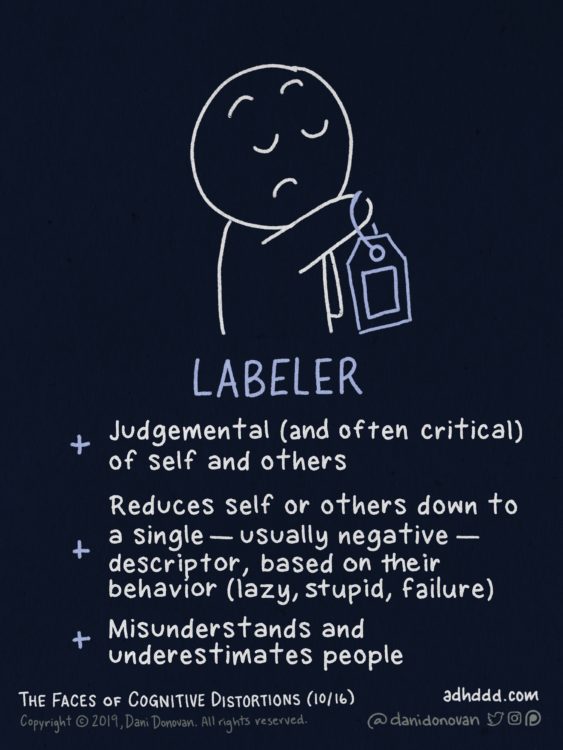
11. Mind Reading
- Predicts what people are thinking or how they feel
- Assumes intent (often the worst) without real evidence
- Tends to overanalyze reactions
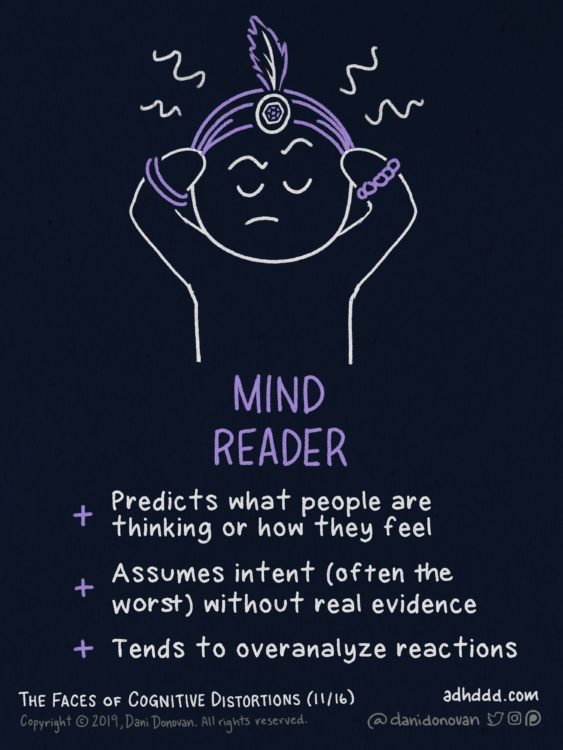
12. Negative Filtering
- Only focuses on the negative aspects of situations
- Rarely gives people the benefit of the doubt
- Ignores positive events that conflict with pre-existing ideas
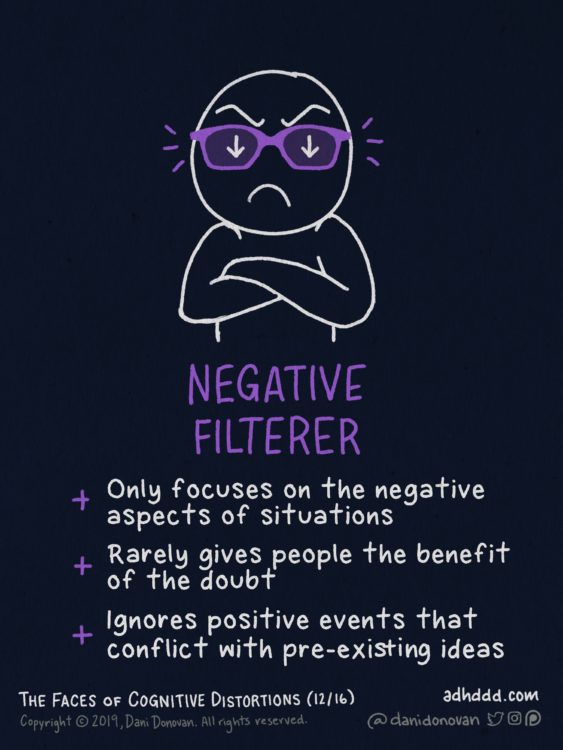
13. Personalizing
- Tendency to believe everything others say and do is about them
- Takes everything personally
- Blames self for things they aren’t responsible for
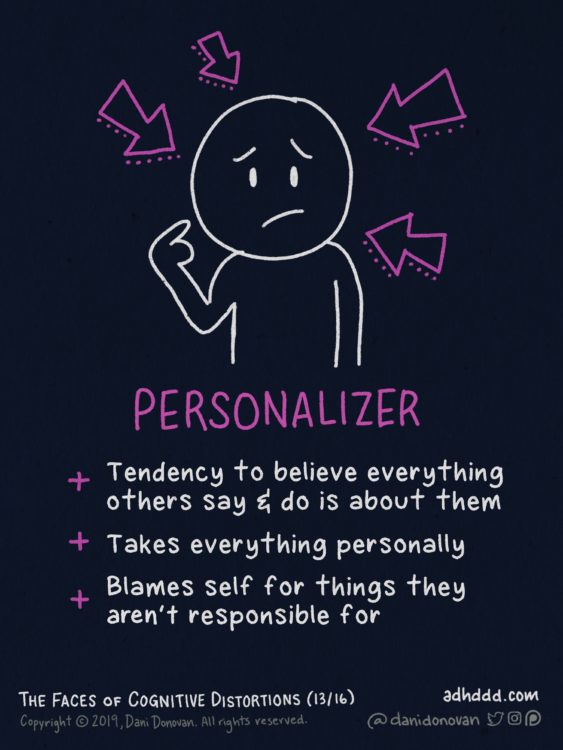
14. Needing to Be Right
- Feels the need to defend their views and prove they’re correct
- Ego-centric and self-destructive
- Always being “right” can become more important than the feelings of others
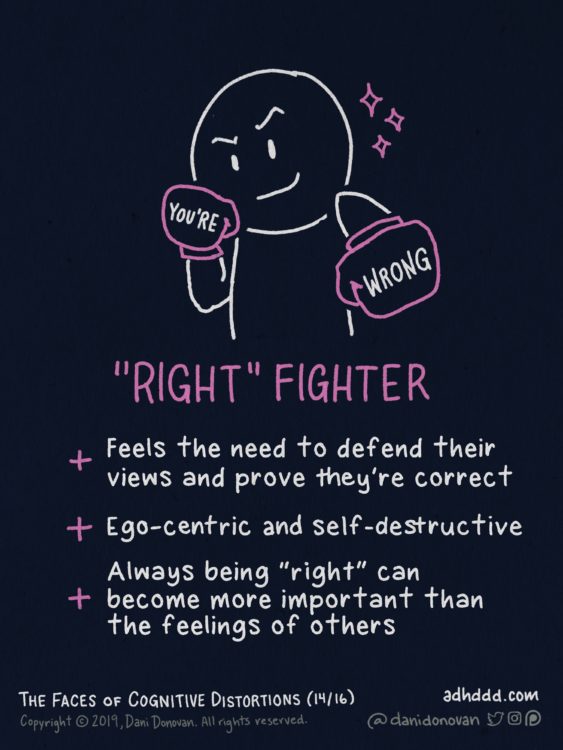
15. “Should” Beliefs
- Thinks in terms of “should,” “must,” and “supposed to”
- Holds firm beliefs of how things out to be done
- Disappointed when self or others don’t live up to high internal expectations
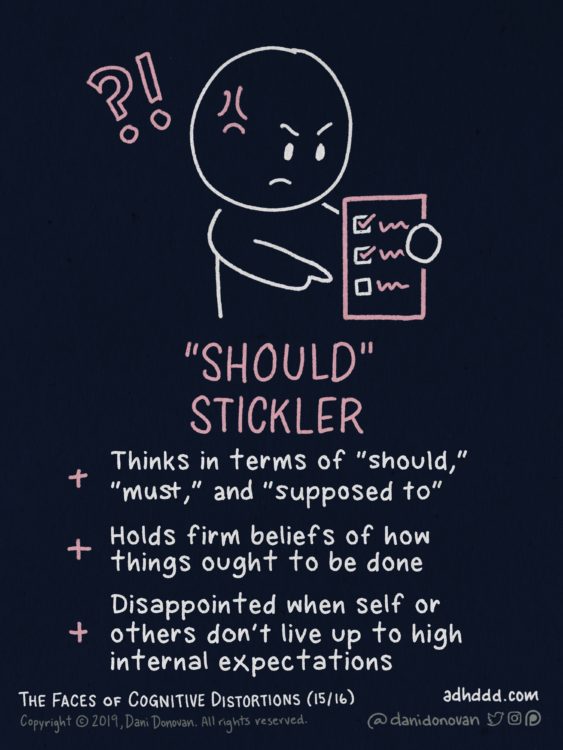
16. Intolerance of Uncertainty
- Deeply uncomfortable not knowing how things will turn out
- Anxious when not in control of situations or outcomes
- Decision paralysis; often worried about making the “wrong” choice
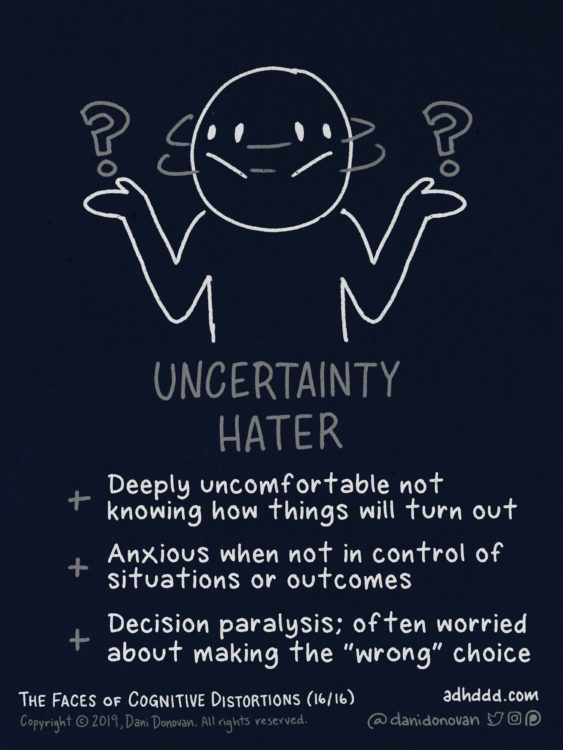
To see more from Dani, visit her site and follow her on Twitter!
Which faces do you relate to? Let us know in the comments below.
Images via Dani Donovan

